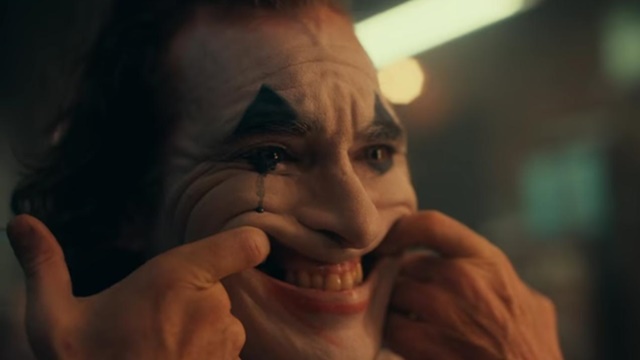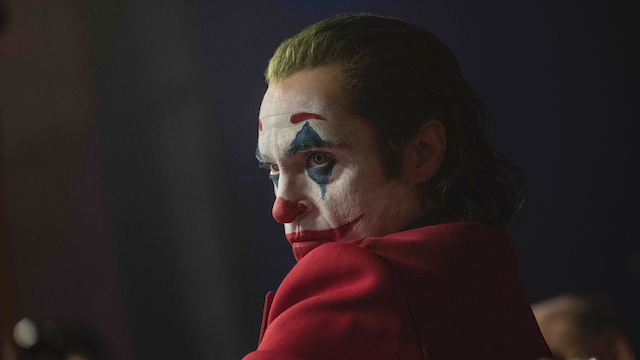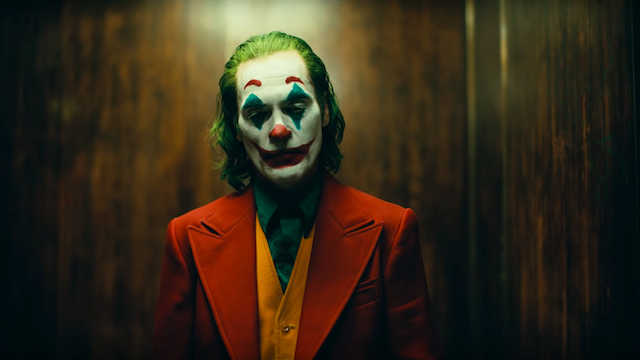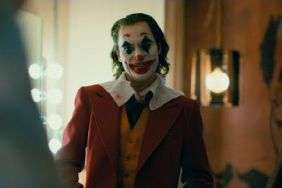Leading up to its release, Joker has been mired in controversy. For a movie that most people hadn’t seen, there was a lot of chit-chat about what the film itself symbolizes. While much is left to interpretation, Joker is the type of manic experience that would please the Clown Prince of Crime himself. It’s the film equivalent of an Elseworlds book: although the story is set within the guise of Batman mythology, it’s also mostly a standalone affair told from a specific perspective. Most of the cinematic interpretations of the character in the past displayed shades of ambiguity concerning Joker’s origin. This film, on the other hand, instead focuses on specificity.
At the same time, Joker is also a complete abstraction. It takes the dichotomy of the character and filters it through a societal lens. Arthur Fleck is a mentally ill sociopath who is eventually molded by society into a stone-cold psychopath. He’s a man who has been abandoned by the very culture that beat him down in the first place. There’s something sinister growing inside of Arthur, and the film does a beautiful job of pacing out his transformation. This is both a detriment and blessing, but is anchored by a masterful leading performance.
Revisiting the Problematic Man-Child

As the brains behind this weird DC offshoot, co-writer/director Todd Phillips is trying to make a statement with his latest directorial effort. It’s hard to say precisely what statement, though there’s something to be said about how hard Phillips is trying to be a serious filmmaker. He mostly succeeds. It’s a brilliant change of pace for a filmmaker who has primarily made silly comedies featuring man-child characters as his leads. Yet Joker is also representative of this trait. It features the dramatic version of what Phillips has staked his career on – a problematic man-child. Just one who happens to be far more disturbed and mentally ill than any of his other characters.
While this is troublesome in its own right, Phillips captures a precise tone in Joker. The film feels hugely reminiscent of gritty crime thrillers from the late seventies and early eighties. In essence, this is Phillips’ homage to Scorsese classics like Taxi Driver and The King of Comedy. Even though the correlations are undeniable, he’s also wearing his heart on his sleeve as a filmmaker. There’s a pure level of craftsmanship on display – however shallow it may be.
Phoenix Fire

It’s no secret that Joaquin Phoenix is one of the greatest working actors of our era. He’s chalked up countless incredible performances in the past, from Gladiator to modern classics like The Master and Her. Joker is only further affirmation of Phoenix’s greatness as pure performer. Raw, unhinged, and completely uncompromising, he’s an absolute tour-de-force in the film. He also manages to forge a stable path amongst the pantheon of incredible actors to take on this role. His only real interest in the film is to capture something real, which may seem paradoxical because of how the movie ends. However, it’s also why his performance is so mesmerizing. It frees Phoenix to dig into the psychology of playing the Joker, while also allowing a more flawed, human approach to an absolutely abhorrent character.
While Phoenix is unequivocally the star of the show, the film also adds some intriguing supporting players including Robert De Niro, Zazie Beetz, Frances Conroy, and Brett Cullen. Despite the wealth of talent surrounding him, all these players have minimal screen time, so their impact is limited. As a result, there’s not much for them to do other than stand in awe of Phoenix in his element. In other words, this movie wouldn’t be anywhere near as effective if it weren’t for the presence of its magnetic leading performer.
Appealing To the Lowest Common Denominator

It’s honestly a wonder as to how Phoenix was even courted for the role to begin with. While the masterful actor certainly aids the direction from Phillips, the screenplay for Joker does not. Co-written by Phillips and Scott Silver, the story presents the illusion of dramatic heft. It’s trying to be about so many different things that it forgets to be about anything at all. It does a great job of stripping Arthur to his core, but what’s inside is ultimately hollow. For a movie that’s trying to be realistic, the writing is often dumbed down with character motivations that never quite make sense.
Situations in Joker are slightly exaggerated, and dialogue is on the nose, which makes the film feel surface level at best. In essence, it creates the illusion of being about something far grander than it’s own designs. Unfortunately, it never actually commits to a specific thematic path. Except for Arthur, the rest of the characters become caricatures in their own right. There are a few exciting moments, but the film primarily appeals to the lowest common denominator. Simply put, the film thinks it’s about something when, in reality, it’s about nothing at all.
A Shocking and Visceral Experience

Aside from these glaring drawbacks with the writing, Joker is a shocking and visceral experience. The production design and cinematography are outstanding, both working to create flawless world-building. Much like Phillips, DP Lawrence Sher has successfully graduated from shooting irreverent comedies to creating a dramatic visual presence – one that might even be Oscar-worthy. In the same vein, Mark Friedberg’s immersive production design could very well be a dark horse. Similarly, the score by Hildur Guònadóttir is both haunting mesmerizing at the same time. It adds a level of tension and atmosphere that perfectly captures Arthur’s increasingly dire headspace.
Despite the impressive craftsmanship on display from the production team, Joker is the type of film that is meant to provoke a reaction. It’s intended to get people talking, and whether this is for better or worse remains to be seen. At least on the surface, it’s an exciting character exploration, but not much else. It’s not necessarily a transcendent experience, even though it’s clear that’s what it hopes to be. More than anything, the film is trying to start a discourse – for better or worse. It’s safe to say that this movie is unique, though maybe not in the way that it hopes to be. But much like the titular character, it sure is going to try.
Rating: 4/5







